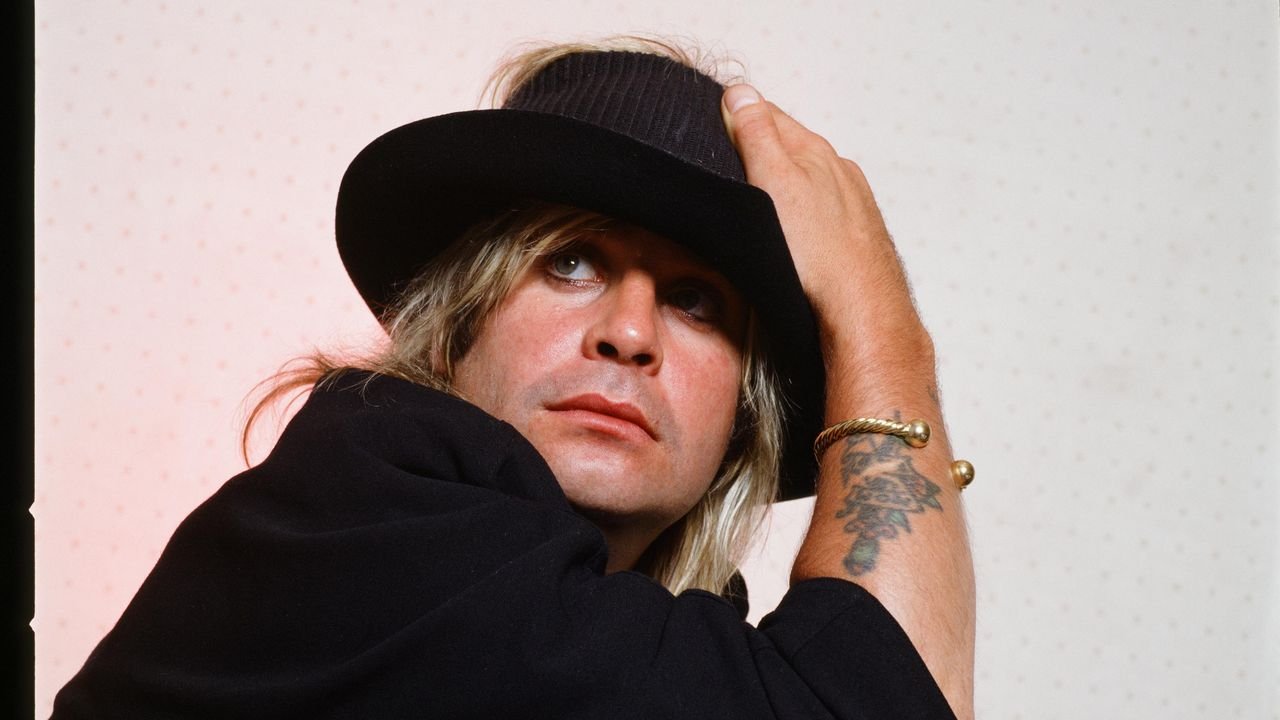Ozzy Osbourne, the most significant vocalist in heavy metal’s crystallization and endurance, passed away this morning at the age of 76. The former Birmingham, U.K., slaughterhouse employee, born John Michael Osbourne, changed the world after his blues-rock band, Earth, underwent a few changes: they wrote some frightening tunes, made theater out of occult imagery, and changed their name to Black Sabbath. The group’s first six albums—released between 1970 and 1975—still constitute the most epochal run in heavy metal history, laying genre-defining bedrock for doom and distortion. Osbourne’s voice soared with lyrics about Satan and the realities of a wicked world that felt like it was under his thumb.
Had Osbourne retired at age 30, the “Prince of Darkness” would have remained a legend to generations of metalheads. Instead, his career spread across six decades, Osbourne remaining an icon as heavy metal’s evolved in sound and principles. In the ’80s he was the drug-and-alcohol fueled hedonist made a pariah by religious leaders. In the ’90s, he was a community guide who co-founded Ozzfest, a heavy metal gathering first held in those unfashionable years between grunge and the nu-metal takeover. In the ’00s, he was metal’s self-aware class clown, playing the doddering dad in four seasons of his own MTV reality show, The Osbournes. In the years that followed he was a memoirist, a Guitar Hero character, a frequent voice of cartoon characters, and a surprise guest on a Top 10 rap single, Post Malone’s “Take What You Want.”
Here’s 15 essential songs from Osbourne’s wild career.
Black Sabbath, “Black Sabbath” (1970)
Guitarist Tony Iommi didn’t know the series of notes he’d borrowed from Gustav Holst’s The Planets was known as “diabolus in musica,” or “devil in music,” a tense, unresolved sequence that composers avoided during the Renaissance. However it would soundtrack this slow, lurching song of menace, in which Osbourne pleads for help in the face of Satan. Decades of “doom metal” bands like St. Vitus, Sleep, Electric Wizard and Yob can trace most of their discography to these six minutes and 20 seconds. Said Iommi in his memoir, Iron Man: “We knew we had something; you could feel it, the hairs stood up on your arms, it just felt so different. We didn’t know what it was, but we liked it.” The opening track on the band’s self-titled 1970 debut, “Black Sabbath” is often regarded as the first true heavy metal song—something that Osbourne wasn’t quick to confirm. “As far as we were concerned,” he said in his memoir I Am Ozzy, “we were just a blues band that had decided to write some scary music.”
Black Sabbath, “Paranoid” (1970)
This classic-rock locomotive features Osbourne begging and brooding through bassist Geezer Butler’s evocative lyrics about depression: “Make a joke and I will sigh and you will laugh and I will cry/Happiness I cannot feel, and love, to me, is so unreal.” Written in less than a half-hour to fill out their second album, it became their only song to hit the Top 10 in the U.K., landing Black Sabbath an unlikely booking on “Top of the Pops” alongside Cliff Richard. “[I]t was like a punk song years before punk had been invented,” said Osbourne in his memoir, I Am Ozzy. “Mind you, none of us thought it was special when we recorded it.”
Black Sabbath, “Iron Man” (1970)
Black Sabbath’s biggest American hit and their most iconic guitar riff. As but one example of its influence, Jack Black’s Dewey Finn teaches it in 2003’s “School of Rock.” Over the years, Osbourne has performed versions of it with Metallica, Guns N’ Roses guitarist Slash, Irish alt-metal band Therapy? and rapper Busta Rhymes.
Black Sabbath, “War Pigs” (1970)
Osbourne’s vocals took center stage in one of the greatest anti-war songs of all time, Butler’s lyrics drawing a sharp circle around the role that class plays in the military-industrial complex: “Politicians hide themselves away/They only started the war/Why should they go out to fight?/They leave that role for the poor.” The subject would be a concern for reality-based Eighties metal bands like Slayer (“Mandatory Suicide”) and Metallica (“Disposable Heroes”), and, later, on the deeply political albums of Rage Against the Machine and System of a Down. “Geezer came up with these heavy-duty lyrics about death and destruction,” said Osbourne in I Am Ozzy. “No wonder we never got any chicks at our gigs.”
Black Sabbath, “Changes” (1972)
Osbourne, a lifelong Beatles fan, showed his range by coming up with the vocal melody for Black Sabbath’s first and finest power ballad. A 2003 version recorded with his youngest daughter, Kelly, became Osbourne’s lone Number One single in the U.K. “I had to keep listening to it over and over again,” he said in I Am Ozzy about hearing the original. “I’m still like that today: If I put it on my iPod, I’ll drive everyone nuts by singing along to it for the rest of the day.”
Black Sabbath, “Symptom of the Universe” (1975)
Tony Iommi’s churning riff and Ozzy Osbourne’s rhythmic bark in songs like “Symptom of the Universe” laid the foundation for what would be known as “thrash metal” in the 1980s, a furious roil produced by bands like Metallica, Megadeth, Slayer, Anthrax and more.
Ozzy Osbourne, “Crazy Train” (1980)
Fired from Black Sabbath in 1979 after years of interband tension and substance abuse, Osbourne holed up in a Hollywood hotel room and lived on cocaine, alcohol and pizza until he was found by Sharon Arden, the daughter of Sabbath manager Don Arden. Sharon and Ozzy soon entered a partnership—professional and, shortly thereafter, romantic—that would last more than 40 tumultuous years. Together, they created Ozzy’s comeback album Blizzard of Ozz, which would become a 5x-platinum metal landmark, established the legend of classical-indebted guitarist Randy Rhodes, and kept Osbourne a rock star through the decade of Aquanet. Lead single “Crazy Train” was a Cold War lament that became the signature song of Osbourne’s solo career; it was reworked as a lounge version for his TV show, sampled for a Trick Daddy hit in the crunk era, and— according to Setlist.fm—performed at more of Osbourne’s solo shows than any other song.
Ozzy Osbourne, “Flying High Again” (1981)
The era surrounding Osbourne’s second and third solo albums 1981’s Diary of a Madman and 1983’s Bark at the Moon was the apex of the shocking antics that often overshadowed his music: Biting the head off a dove in a CBS meeting, throwing meat at his audience, accidentally biting the head off a bat, urinating on the Alamo, snorting a line of ants. His biggest rock radio hit of the era would be the appropriately soaring “Flying High Again.”









Leave a Reply